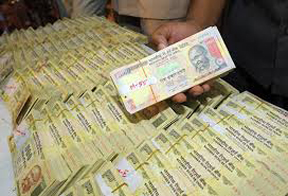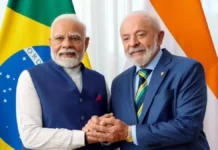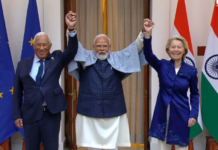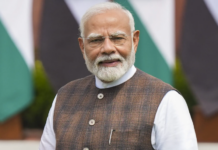 NEW DELHI: The Centre today placed a list of names of 627 Indian account holders in HSBC bank, Geneva in black money case before the Supreme Court which asked SIT to go through the list and take appropriate action in accordance with law.
NEW DELHI: The Centre today placed a list of names of 627 Indian account holders in HSBC bank, Geneva in black money case before the Supreme Court which asked SIT to go through the list and take appropriate action in accordance with law.
A bench headed by Chief Justice H L Dattu did not open the sealed envelope containing the names placed by the Centre and said that it would be opened only by Chairman and the Vice-Chairman of the Supreme Court-appointed Special Investigation Team (SIT).
It asked the SIT to submit status report of its probe by November-end.
Placing the documents before the bench, Attorney General Mukul Rohatgi said that details of account holders are of year 2006 which were supplied by the French government to the Centre in 2011.
He said that the data was stolen from HSBC bank in Geneva which later reached France from where the government got the information.
He said the sealed envelope contained three documents– Government’s correspondence with French government, list of names and a status report.
He also informed the court that some people have accepted that they have accounts in foreign banks and have paid tax.
The bench, also comprising Justices Ranjana Prakash Desai and Madan B Lokur allowed the Centre to put forth its grievances regarding various treaties with foreign countries before SIT.
The bench said that the Chairman and the Vice Chairman of SIT are former Supreme Court judges and they are not “layman” and they can decide on various issues arising out of black money probe.
“We will send the entire list to SIT and they can proceed in accordance with law. It is for them to take care of how to conduct further probe,” the bench said.
Meanwhile, the apex court did not allow the plea of AAP chief Arvind Kejriwal to provide additional information on the issue to the SIT, saying that it will consider his plea on next date of hearing on December 3.
The Centre in its affidavit on October 27, had disclosed eight names including that of Pradip Burman, one of Dabur India promoters, a bullion trader and Goa miners against whom it has started prosecution for allegedly stashing black money, saying that all the names of account holders cannot be disclosed unless there is a “prima facie” evidence of wrongdoing.
Rejecting the Center’s stand, the Supreme Court had yesterday ordered it to disclose all the names of Indian bank account holders abroad in a sealed envelope.
Rajkot-based bullion trader Pankaj Chimanlal Lodhya and Goa-based mining company Timblo Private Limited and its five Directors were among the names that figured in the list which was filed in the apex court by the government.
“The government is committed to disclose names of persons holding illegal money abroad. However, every account held by an Indian in a foreign country may not be illegal and the fundamental right of citizens to privacy under Article 21 of the Constitution cannot be ignored and has been recognized by this court,” it had said.
It had urged the apex court to modify its earlier order directing it to reveal even the names of foreign bank account holders against whom no evidence was found for stashing black money saying the government may have problems entering into tax agreements with other countries.
“There is absolutely no intention on the part of the government to withhold information, including names of persons who have stashed black money abroad, but only to seek certain clarification that will enable the government to enter into agreements with other countries under which information relating to unaccounted money lying abroad can be obtained,” it had said.
“The information received under these tax treaties and agreements will be disclosed after following the due process of law, in all cases where evasion of tax is established. The intention of the present government is clear and unambiguous.
“The government is keen to unearth black money held abroad and for that purpose it will use all diplomatic and legal means and also all investigating agencies to obtain information that can assist in such unearthing,” the affidavit had said.–PTI






